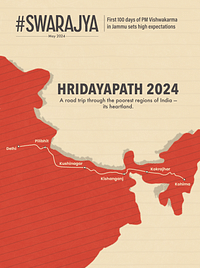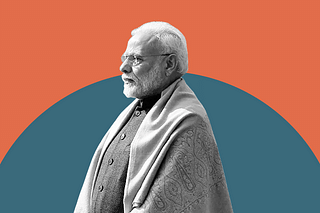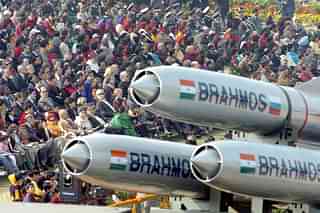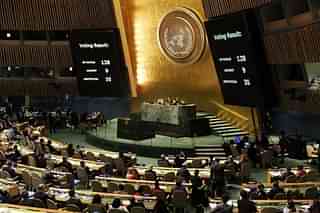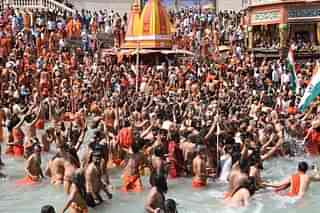Insta
Indus Waters Treaty Dispute: India Slams World Bank For Favouring Pakistan
Swarajya Staff
Nov 11, 2016, 12:50 PM | Updated 12:50 PM IST
Save & read from anywhere!
Bookmark stories for easy access on any device or the Swarajya app.
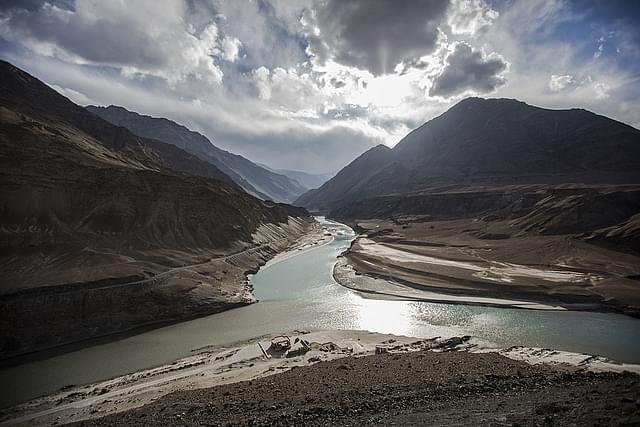
India on Thursday voiced its disapproval at the World Bank’s decision to follow two ‘parallel mechanisms simultaneously’ to resolve differences with Pakistan on the 330 MW Kishanganga Hydroelectric Power Project coming up in Jammu and Kashmir, saying that it "cannot be party to actions that are not in accordance with the Indus Waters Treaty".
On the issue of differences between India and Pakistan on Kishanganga and Ratle Hydroelectric Projects, India had asked the World Bank to appoint a neutral expert to resolve the differences of a technical nature, which are within the domain of a neutral technical expert. However, Pakistan had sought setting up of a court of arbitration. The neutral expert can also determine that there are issues beyond mere technical differences. The World Bank has decided to proceed with both steps simultaneously.
India pointed out to the World Bank that the pursuit of two parallel difference/dispute resolution mechanisms – a neutral expert and a court of arbitration – is legally untenable.
The Ministry of External Affairs (MEA), in a statement, said that the government "will examine further options and take steps accordingly". The statement cited the Indus Waters Treaty, signed between the two countries in 1960, and stated that the World Bank has a specified role in the process of resolution of differences and disputes. "Inexplicably, the World Bank has decided to continue to proceed with these two parallel mechanisms simultaneously. India cannot be party to actions which are not in accordance with the Indus Waters Treaty," said the statement issued by the MEA spokesperson from Tokyo, shortly after Prime Minister Narendra Modi landed there.
Pakistan had expressed strong objection on Thursday over the design of Kishanganga dam in India and a case in this respect was filed with the World Bank.
The Kishanganga Hydro Electric Project, a run-of-the-river project on a tributary of the Jhelum River in Bandipora in Jammu and Kashmir, is being built by state-run National Hydroelectric Power Corporation at a cost of Rs 57.8 billion. Pakistan says the Kishanganga project will affect the 969 MW Neelum-Jhelum Hydroelectric Project, which it is building downstream on the river.
With inputs from IANS.
Save & read from anywhere!
Bookmark stories for easy access on any device or the Swarajya app.
Support Swarajya's 50 Ground Reports Project & Sponsor A Story
Every general election Swarajya does a 50 ground reports project.
Aimed only at serious readers and those who appreciate the nuances of political undercurrents, the project provides a sense of India's electoral landscape. As you know, these reports are produced after considerable investment of travel, time and effort on the ground.
This time too we've kicked off the project in style and have covered over 30 constituencies already. If you're someone who appreciates such work and have enjoyed our coverage please consider sponsoring a ground report for just Rs 2999 to Rs 19,999 - it goes a long way in helping us produce more quality reportage.
You can also back this project by becoming a subscriber for as little as Rs 999 - so do click on this links and choose a plan that suits you and back us.
Click below to contribute.
